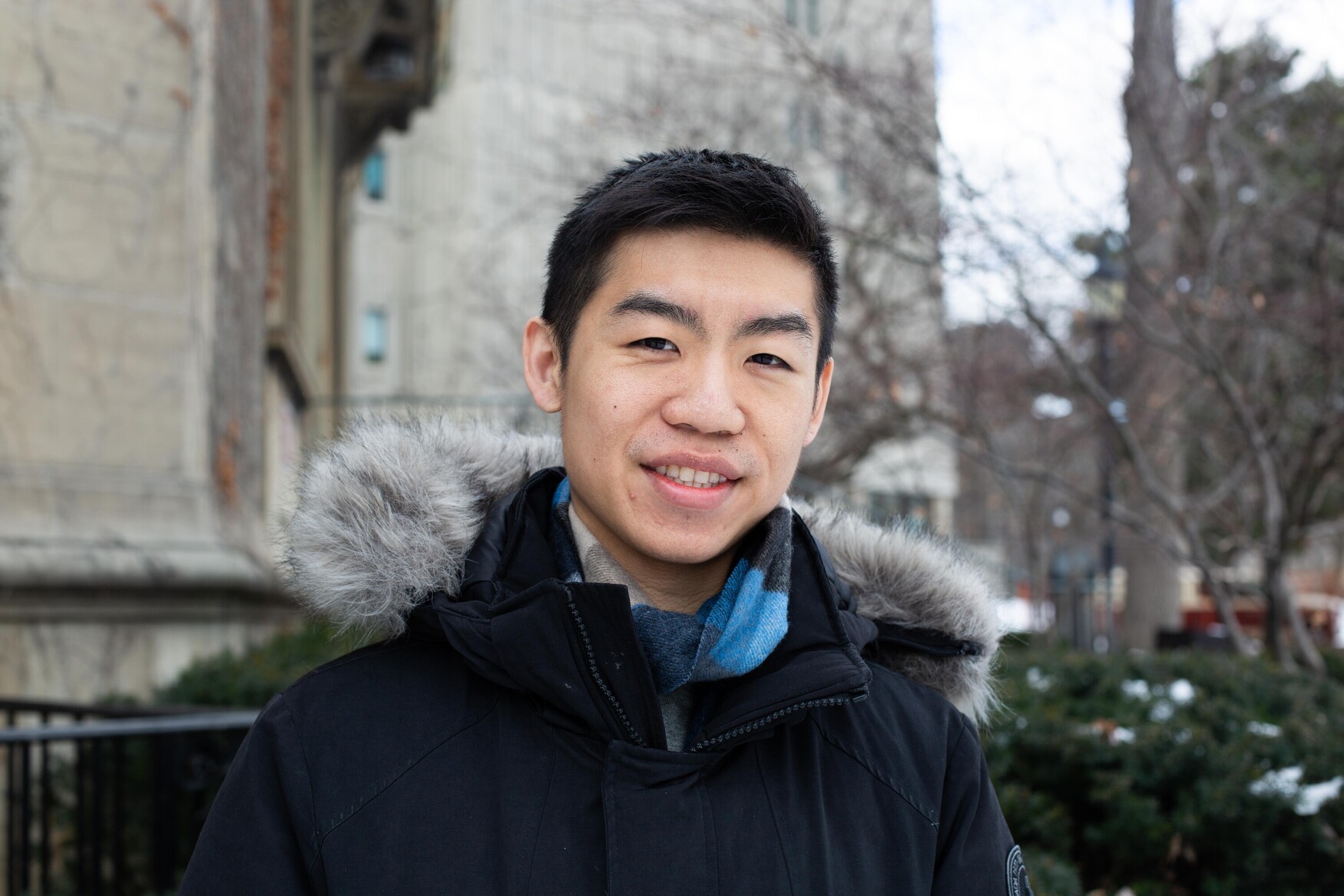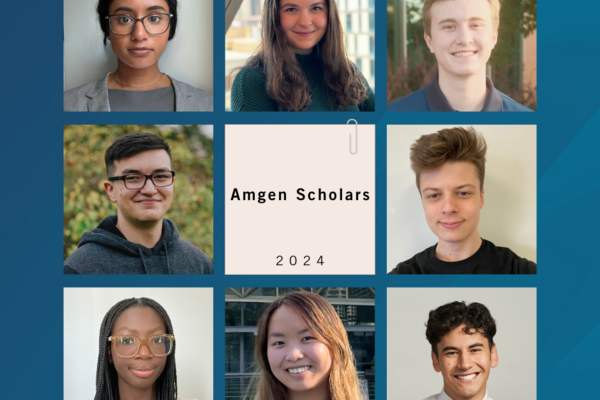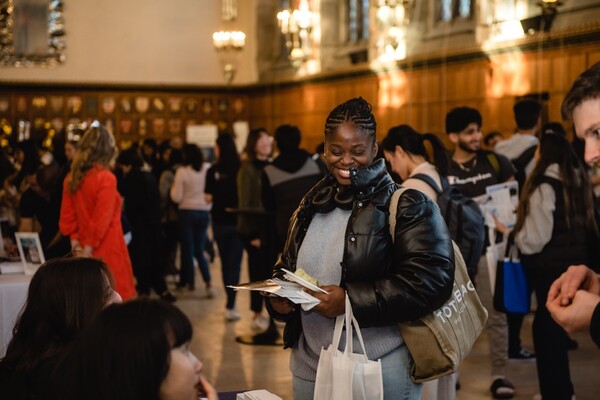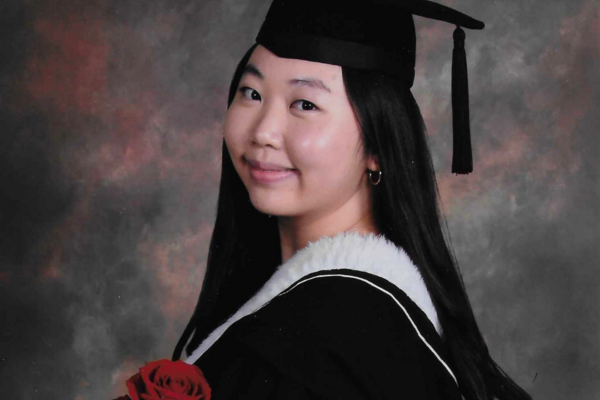Faces of Temerty Medicine: Jonas Yeung

Jonas Yeung has been interested in science since he was a teen. Now in the fourth year of his PhD in Medical Biophysics, he’s studying how chemotherapy and radiation affect the brain to improve quality of life for pediatric cancer survivors. He spoke to us about his research, why he decided to go down this academic path and why lab rotations have been a highlight of his experience at U of T.
What inspired you to pursue a career in science and research?
I owe it to my excellent high school teachers who first sparked my interest in science. I found that each discipline of science opened a new world: from understanding the physical laws that govern the universe to growing bacteria on a petri dish! This led me to try out various research opportunities during my undergraduate degree and eventually my decision to do graduate school. Although research is full of challenges and failures, the intellectual stimulation, and the surprises you find in nature make it all worthwhile. I also find research to be a meaningful vocation as I am utilizing my skillset to solve problems that can benefit others.
What does your research focus on?
I use magnetic resonance imaging (MRI) to study how chemotherapy and cranial radiation therapy affect brain development in mice. Though many children survive cancer thanks to modern treatments, some show late appearing cognitive side effects, which diminish their quality of life. My project aims to identify mechanisms underlying these side effects with the long-term goal of optimizing the quality of life for pediatric cancer survivors.
I chose this research for a couple reasons: firstly, I wanted a blend of physics and medicine so an interdisciplinary program like Medical Biophysics was a great fit. Secondly, impact is crucial to me; this project has a tangible outcome that is applicable in the clinic. Through our affiliation with The Hospital for Sick Children, we work closely with clinicians to ensure that our research is translatable.
One of my projects examines the impact of exercise on the brain in mice treated with and without cranial radiation therapy. While cranial radiation damages the brain, exercise restored many of the brain regions, especially the hippocampus. Even more astonishing is the amount of brain growth that exercise promoted in mice without radiation treatment. When I presented these findings to my supervisor, he was amazed and declared we should all exercise more!
What were you most nervous or unsure about when you first started?
When I first started, I had doubts on whether I belonged in graduate school. Part of it centered on proving to myself that I am a capable graduate student, which came by developing a good work ethic and overcoming the steep learning curve of adapting to a new research environment. I think a lot of it was alleviated by not comparing myself to my peers and realizing that everyone works at their own pace because each student should strive for their personal best.
At a more personal level, I questioned whether graduate school was worth the time. Like any prospective graduate student, one hear stories of negative experiences or a terrible supervisor. Hence, strategically selecting a good lab and supervisor is crucial to enjoying the years invested in the program. It is also rare to find the perfect fit, so I made a list of things that I prioritized in a lab and ranked them (eg., supervisor, project, work environment, etc.). Over time, I gained confidence through the realization that I could contribute to meaningful work and that I had cultivated wonderful friendships that wouldn’t have been possible without graduate school.
What have been the highlights of being in your program at U of T?
One of the most memorable highlights in my program at UofT was our annual Medical Biophysics retreat. It was a fantastic chance to connect with both fellow graduate students and faculty members beyond just an academic setting. Over several days, we participated in talks and activities on a campsite. I fully took advantage of the campsite activities including canoeing, paddling, and treetop climbing. Attending the retreat in my first year strengthened many of my friendships that have lasted to this day.
Another notable highlight was doing lab rotations. In our first few months in the program, we rotated in labs as a “trial run” to see whether a lab will be a good fit. I appreciated the opportunity to sample the variety of labs in Medical Biophysics and meet different people. This helped me understand the diverse lab cultures within the program and to set my standards for finding my “ideal lab." For any prospective graduate student who have the option of doing rotations, I would highly recommend it!
What do you like to do when you’re not focused on research?
Being a graduate student, research is a big part of life — but it’s not everything. When I’m not focused on research, I usually try to spend time with friends and family as it’s important to have a good support system outside of graduate school. I also try to engage in volunteer opportunities as I find it rewarding to focus on others beside myself. I also enjoy playing music, baking, and learning about the enneagram. Recently, I have been reading a book called, ‘The Emperor of All Maladies: A Biography of Cancer’, which highlights the history of cancer research and treatments (and happens to be related to my research) – I would recommend reading if you enjoy a great mix of history and medicine!


